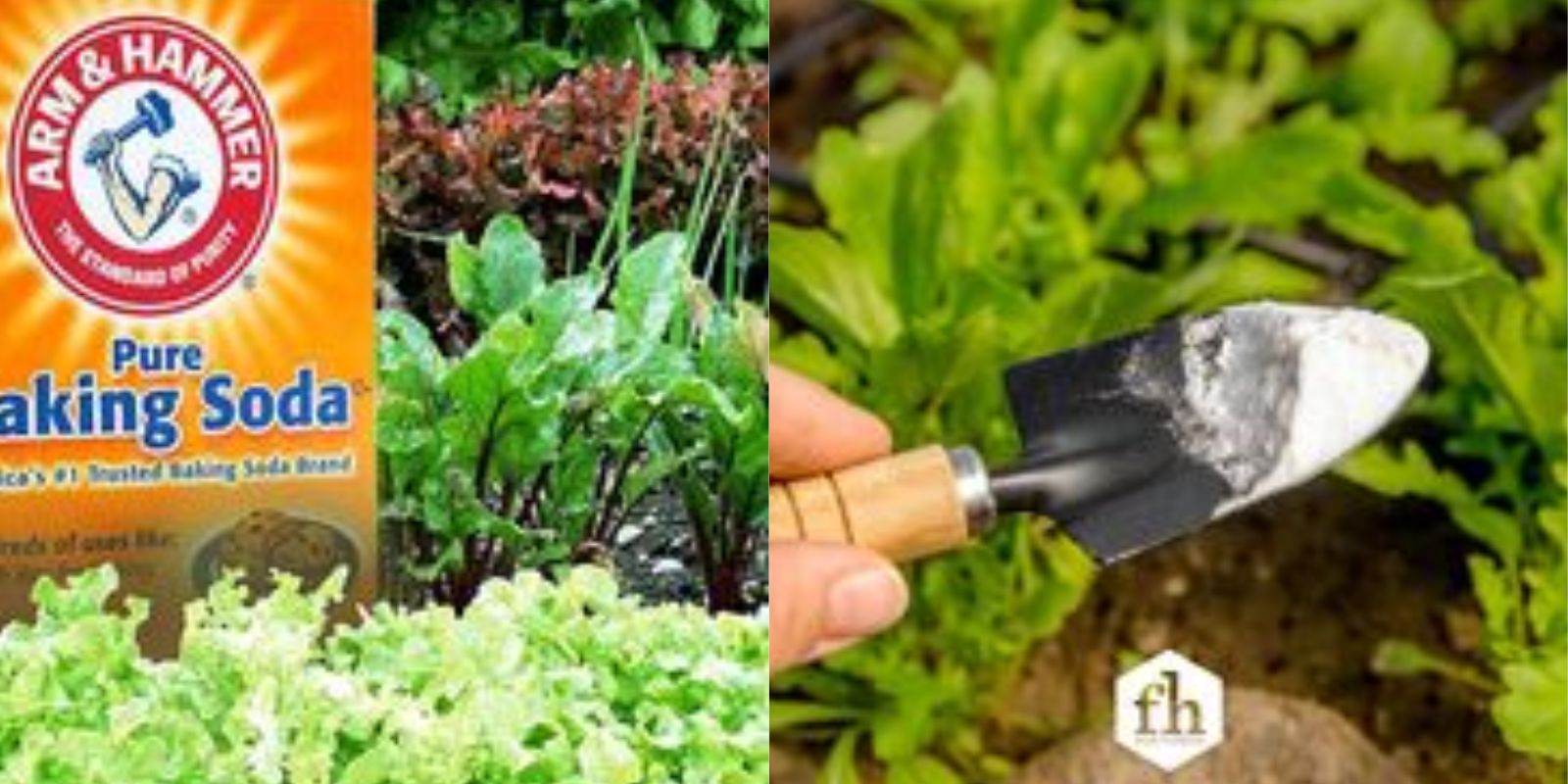Gardening enthusiasts are constantly seeking natural and effective solutions to nurture their plants and enhance their garden’s health. Surprisingly, baking soda, a common household item known for its versatility in baking and cleaning, also holds numerous benefits for the garden. From controlling pests to improving soil health, here’s a comprehensive guide to 10 clever uses of baking soda that every gardener should know.
Introduction
In the realm of gardening, where the focus is often on organic and eco-friendly practices, finding multipurpose tools like baking soda can be a game-changer. This humble ingredient offers solutions that are not only effective but also safe for plants, pets, and the environment. Let’s delve into how baking soda can be utilized creatively in various aspects of gardening to promote healthier plants and a more vibrant garden.
1. Natural Fungicide
One of the most valuable uses of baking soda in the garden is as a natural fungicide. Fungal diseases like powdery mildew can affect a wide range of plants, causing white powdery spots on leaves and inhibiting growth. Baking soda disrupts fungal spores and prevents their spread.
Application: Mix 1 tablespoon of baking soda with 1 gallon of water and a few drops of liquid soap. Spray this solution on plants affected by powdery mildew every 1-2 weeks, especially during humid weather.
2. Weed Killer
Weeding is a constant battle in any garden, and chemical herbicides can pose risks to both plants and the environment. Baking soda offers a safe alternative for controlling weeds, particularly in cracks and crevices where they tend to grow.
Application: Sprinkle baking soda directly onto weeds. Reapply as necessary to effectively kill them without harmful chemicals.
3. Sweeten Tomatoes
Tomatoes thrive in slightly acidic soil, but sometimes the flavor can be affected by overly acidic conditions. Baking soda helps adjust the pH level around tomato plants, resulting in sweeter fruits.
Application: Sprinkle a small amount of baking soda around the base of tomato plants. Gently work it into the soil to raise the pH level slightly and enhance the flavor of tomatoes as they grow.
4. Pest Repellent
Baking soda can act as a deterrent against crawling insects that harm plants, such as ants and crawling pests. It creates an abrasive barrier that pests prefer to avoid.
Application: Sprinkle baking soda around the perimeter of plants or create a protective ring around individual plants to deter insects.
5. Neutralize Soil pH
Maintaining the correct pH balance in soil is crucial for plant health and nutrient absorption. Baking soda can help neutralize overly acidic soil conditions, improving overall soil quality.
Application: Use baking soda sparingly to raise the pH level of acidic soil. Perform a soil test beforehand to determine the current pH level and adjust accordingly.
6. Freshen Cut Flowers
Cut flowers often wilt prematurely due to bacterial growth in vase water. Baking soda helps inhibit bacterial growth and keeps flowers fresh for a longer period.
Application: Add a pinch of baking soda to the vase water when arranging cut flowers. This simple addition can extend the life of your floral arrangements.
7. Clean Garden Tools
Maintaining clean and rust-free garden tools prolongs their lifespan and prevents the spread of diseases between plants. Baking soda is effective for cleaning and removing rust from garden tools.
Application: Make a paste using baking soda and water. Apply this paste to metal parts of tools, scrub with a brush or steel wool, and rinse thoroughly. Wipe dry to prevent rusting.
8. Clean Bird Baths
Bird baths provide essential water sources for birds but can quickly become breeding grounds for algae and bacteria. Baking soda offers a non-toxic solution to clean and disinfect bird baths.
Application: Scrub bird baths with a baking soda paste. Rinse thoroughly with water to remove algae and debris, ensuring a clean environment for visiting birds.
9. Deter Slugs
Slugs are notorious garden pests that can damage young plants and seedlings. Baking soda creates an unpleasant environment for slugs, deterring them from feeding on vulnerable plants.
Application: Sprinkle a light dusting of baking soda around plants susceptible to slug damage. Reapply after rainfall or watering for continued protection.
10. Enhance Compost
Composting is a natural process that transforms organic waste into nutrient-rich soil amendment. Baking soda can help accelerate decomposition and reduce odors in compost piles.
Application: Sprinkle a small amount of baking soda into compost piles. This helps maintain a balanced pH level and promotes the breakdown of organic matter into compost faster.
Conclusion
In conclusion, baking soda proves to be a versatile and invaluable tool for gardeners seeking natural and eco-friendly solutions. From combating pests and diseases to enhancing soil health and plant growth, its uses extend far beyond the kitchen and household cleaning. By incorporating baking soda into your gardening routine, you not only promote healthier plants but also contribute to a more sustainable and environmentally friendly garden ecosystem.
Motivation:
Discover the myriad benefits of using baking soda in your garden and share your experiences and tips with fellow gardeners. Let’s cultivate greener and more vibrant gardens together, naturally!

